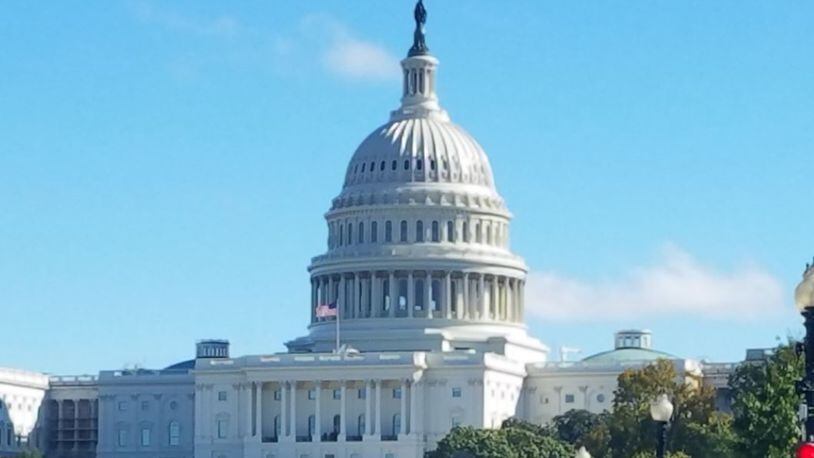"Tomorrow never comes," Yoho added. "This is unconscionable. We've got to address it."
For Yoho and a number of GOP budget hawks in the House, they will reluctantly vote Thursday to accept a Senate budget outline, in order to push ahead with tax reform under expedited rules which don't allow a Senate filibuster.
"We've got to get something major done," said Rep. Mark Meadows (R-NC), the head of the House Freedom Caucus.
But there are some Republicans who worry about the details of the tax plan - which according to a key GOP lawmaker - still haven't been finalized, even though a bill is supposed to be released next week.
"I find it a little condescending to be asked to vote for a budget that nobody believes in, when we don't even get to see the tax bill that is supposed to be the savior of the American economy," said Rep. Matt Gaetz (R-FL).
"I reject the premise that the only way to pass tax reform is to wildly deficit spend and to not have a balanced budget," Gaetz added.
"Our first priority would have been mandatory spending cuts in this budget, but getting tax reform done is key," said Meadows, who acknowledged that in his five years in the Congress, there have been a lot of "empty promises" from Republicans when it comes to spending cuts and entitlement reforms.
When Yoho and Meadows arrived after the 2012 elections, the GOP approved a budget outline that called for a balanced budget by 2022. This year, the goal was for a balanced budget in 2027, but this budget outline would allow the GOP tax reform effort to add $1.5 trillion to the debt over ten years.
"We either deal with these things today, or they will deal with us in the future, and we'll be Puerto Rico or Greece," Yoho told me off the House floor.
"Washington has got to wake up," said Sen. David Perdue (R-GA), who has pressed for more action on reducing the debt, but watched as his pleas have been ignored.
"Our national debt hit $20 trillion a few weeks ago and no one blinked an eye," Perdue added.
After dropping for several years in a row, the federal budget deficit went up again in Fiscal Year 2017, as Uncle Sam last week reported a deficit of $665.7 billion, the largest in four years, up $80 billion from the $585.6 billion deficit in 2016.
"Both parties are equally responsible, equally culpable," said Sen. Rand Paul (R-KY) of the over $20 trillion debt.
That deficit could go up even more in Fiscal Year 2018, as billions in hurricane relief money have already been approved by lawmakers - with no sign of any budget cuts to offset that spending.
On Tuesday, Paul tried to force cuts by requiring hurricane aid to be subjected to the existing caps on domestic spending - but only 18 Senators voted to do that.
"We borrow about a million dollars a minute," Paul complained on the Senate floor.
And GOP lawmakers admit, under this Republican budget, that's going to continue.
About the Author
